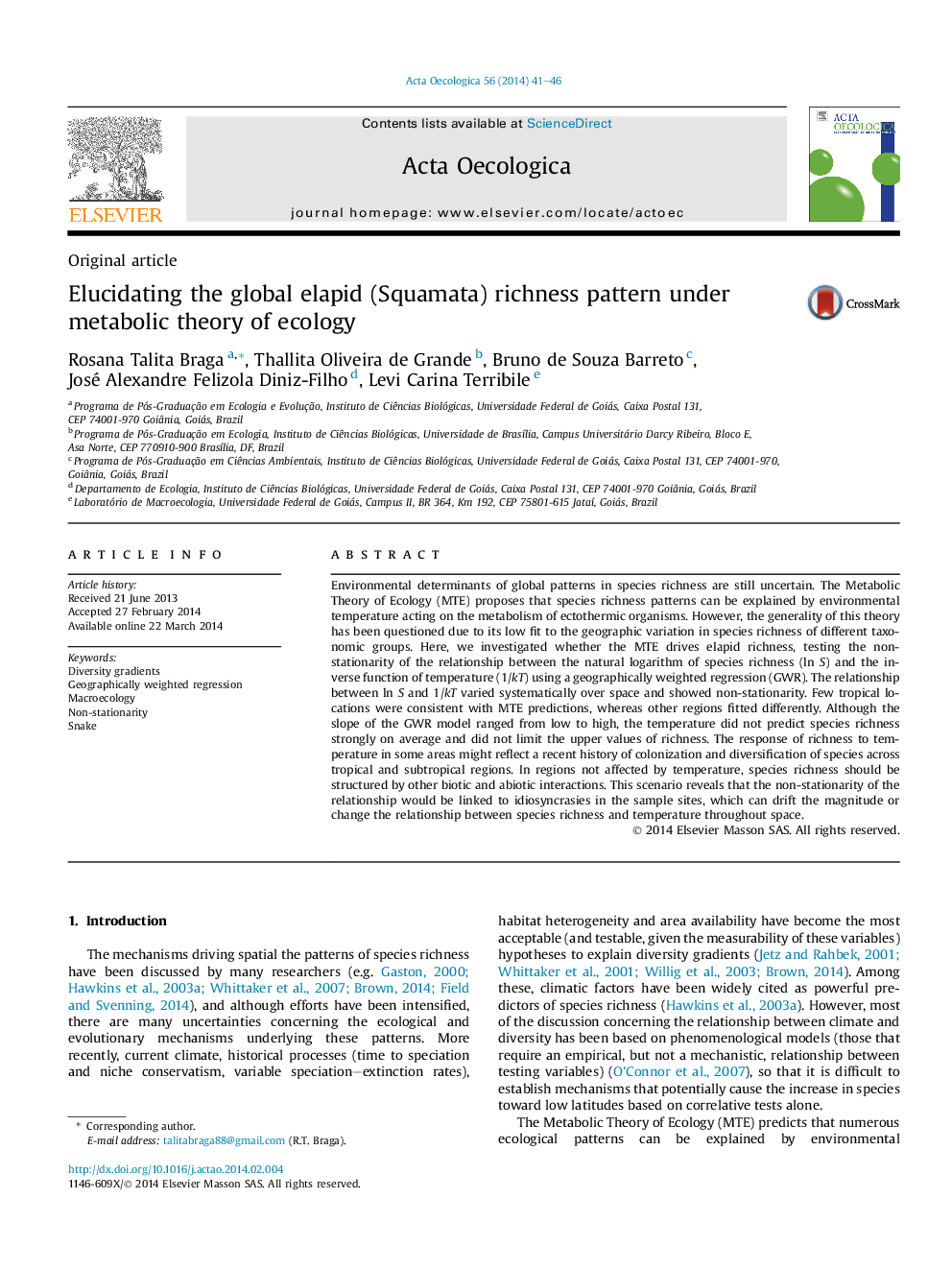| Article ID | Journal | Published Year | Pages | File Type |
|---|---|---|---|---|
| 4381025 | Acta Oecologica | 2014 | 6 Pages |
•We found that MTE predictions are not supported in elapid snakes at global or local scales.•The relationship between temperature and species richness isn't stationary.•Species colonization and diversification can explain the unsupported MTE predictions.•Non-stationarity observed may have been reflective of other biotic–abiotic factors.
Environmental determinants of global patterns in species richness are still uncertain. The Metabolic Theory of Ecology (MTE) proposes that species richness patterns can be explained by environmental temperature acting on the metabolism of ectothermic organisms. However, the generality of this theory has been questioned due to its low fit to the geographic variation in species richness of different taxonomic groups. Here, we investigated whether the MTE drives elapid richness, testing the non-stationarity of the relationship between the natural logarithm of species richness (ln S) and the inverse function of temperature (1/kT) using a geographically weighted regression (GWR). The relationship between ln S and 1/kT varied systematically over space and showed non-stationarity. Few tropical locations were consistent with MTE predictions, whereas other regions fitted differently. Although the slope of the GWR model ranged from low to high, the temperature did not predict species richness strongly on average and did not limit the upper values of richness. The response of richness to temperature in some areas might reflect a recent history of colonization and diversification of species across tropical and subtropical regions. In regions not affected by temperature, species richness should be structured by other biotic and abiotic interactions. This scenario reveals that the non-stationarity of the relationship would be linked to idiosyncrasies in the sample sites, which can drift the magnitude or change the relationship between species richness and temperature throughout space.
